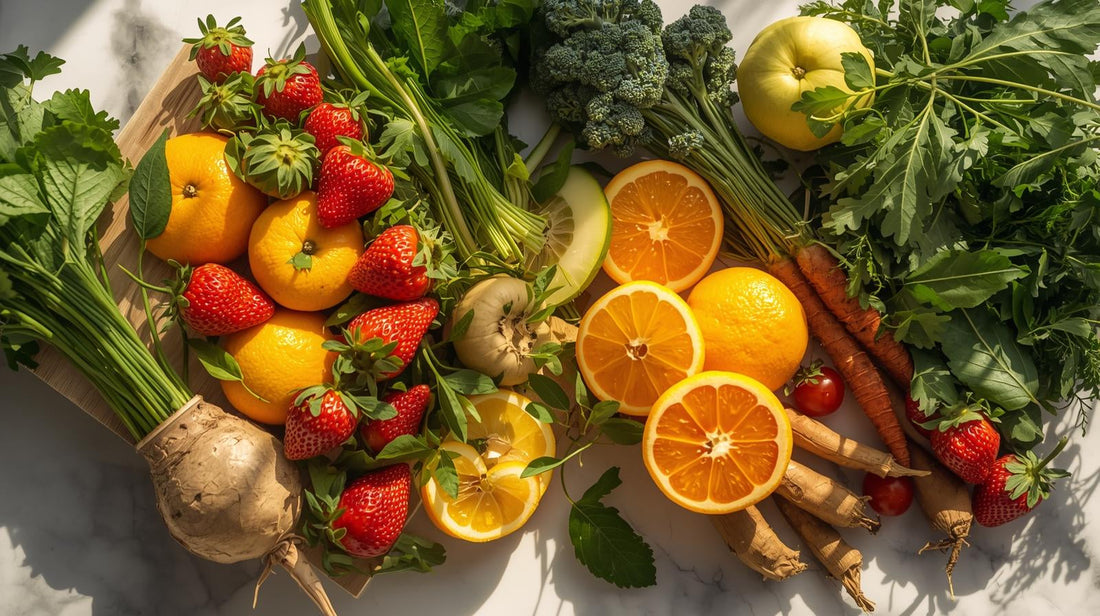
5 Key Benefits of Taking a Multivitamin with Iron - Backed by Research
Share
Even with a healthy lifestyle, many of us fall short on essential nutrients. Busy routines, dietary restrictions, reduced appetite, or limited food variety can all leave nutritional gaps — especially when it comes to iron.
A high-quality multivitamin with iron can help support everyday health, energy and immunity - ensuring your body gets what it needs, consistently.
Below, we explore the science-supported benefits of Khan Nutrition’s Multi-Vitamins Plus Iron - and why this simple once-daily formula can make a big difference.
✅ 1️⃣ Helps Reduce Tiredness & Support Energy Levels
Iron is essential for forming haemoglobin, which carries oxygen around the body. Without enough iron, tiredness and weakness can quickly develop - a common issue in the UK.
➡️ The NHS lists fatigue and low energy as primary symptoms of iron deficiency:
https://www.nhs.uk/conditions/iron-deficiency-anaemia/symptoms/
B vitamins and vitamin C also help release energy from food, supporting normal metabolism and reducing fatigue.
🧠 2️⃣ Supports Brain & Cognitive Function
Iron contributes to normal cognitive performance and attention - something especially important during busy or demanding periods.
B vitamins (including B6, B12 & folate) also aid the nervous system and psychological function.
Research shows that deficiencies may affect mood, clarity, and focus:
https://www.ncbi.nlm.nih.gov/pmc/articles/PMC4772032/
🛡️ 3️⃣ Strengthens the Immune System
Multiple nutrients in this formula, including Vitamins A, C, D, B6, B12 and iron, help the immune system function normally.
Public Health England specifically recommends vitamin D supplementation, particularly in autumn and winter:
https://www.gov.uk/government/publications/vitamin-d-advice-on-supplements-to-avoid-deficiency
This ensures your immune defences are well-supported year-round.
👉 Keep your immune system strong the smart way.
❤️ 4️⃣ Supports Blood Health & Oxygen Transport
Iron contributes to the normal formation of red blood cells and haemoglobin - crucial for oxygen delivery to the brain and muscles.
Women with heavy menstrual cycles are at higher risk of deficiency according to the NHS:
https://www.nhs.uk/conditions/iron-deficiency-anaemia/causes/
Vegetarians may also find it harder to obtain enough iron solely from diet.
This supplement offers a convenient, consistent source - in one tablet a day.
✨ 5️⃣ Helps Maintain Skin, Vision, Bones & Muscles
A broad nutrient profile means support for your whole body:
|
Nutrient |
Benefit |
|
Vitamin D |
Normal bones, teeth & muscle function |
|
Vitamin A & Biotin |
Healthy skin and vision |
|
Vitamin E |
Protects cells from oxidative stress |
This makes a multivitamin far more than an “energy supplement” - it’s wellbeing support from head to toe.
Who May Benefit Most?
✔ Adults with busy or stressful lifestyles
✔ People with low iron intake (e.g. vegetarian diets)
✔ Women with higher iron needs
✔ Students, shift workers & parents seeking focus and stamina
✔ Anyone wanting a simple foundation for daily wellbeing
Why Choose Khan Nutrition Multi-Vitamins Plus Iron?
✅ 100% NRV of essential vitamins (excl. Vitamin K)
✅ Effective iron dose for energy & blood health
✅ 180 tablets — 6-month supply
✅ Vegetarian-friendly
✅ Manufactured in the UK to GMP standards
✅ No artificial colours, flavours, or preservatives
One tablet. Total confidence.
Final Thoughts
Diet comes first - but life isn’t always perfect.
Khan Nutrition Multi-Vitamins Plus Iron offers reliable daily support for energy, clarity, immunity, and blood health - helping you feel like your best self, every day.
💊 Ready to feel your best every day?
👉 Shop Multi-Vitamins Plus Iron for 6 months of complete daily support.
📌 References
NHS — Iron Deficiency Anaemia
https://www.nhs.uk/conditions/iron-deficiency-anaemia/
GOV.UK / Public Health England — Vitamin D Supplementation Guidance
https://www.gov.uk/government/publications/vitamin-d-advice-on-supplements-to-avoid-deficiency
B-Vitamins & Cognitive Function — Oxford/NIH Review
https://www.ncbi.nlm.nih.gov/pmc/articles/PMC4772032/
